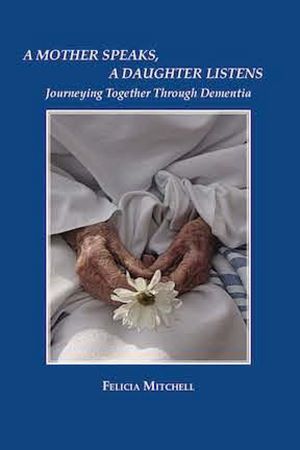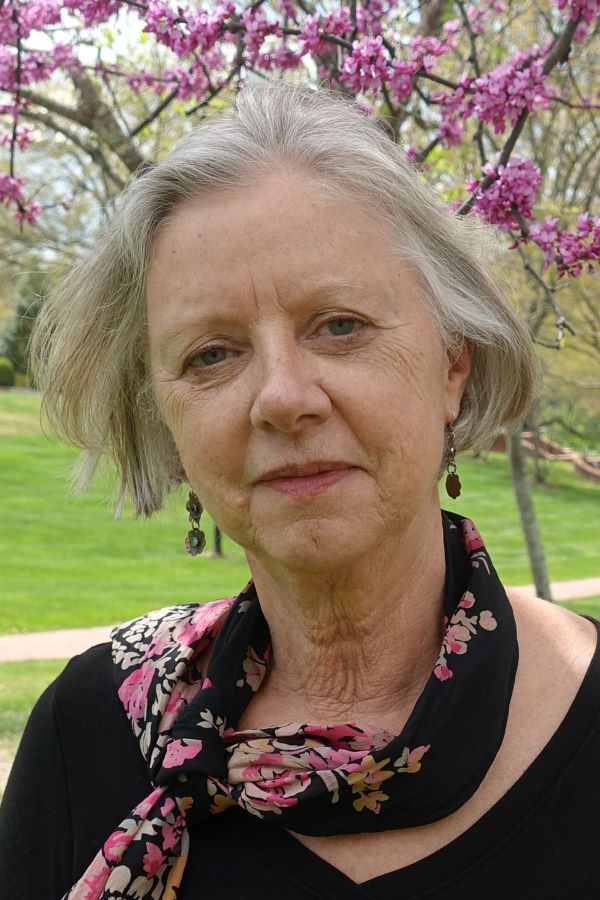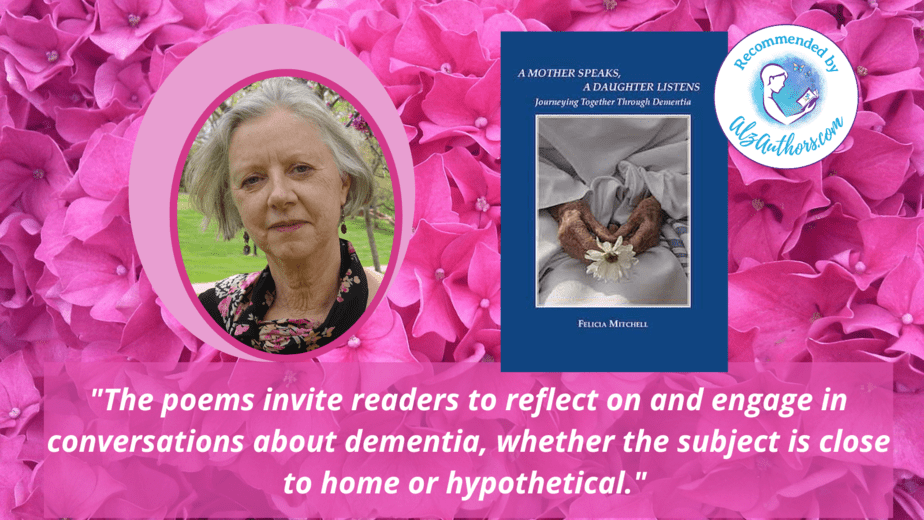 By Felicia Mitchell, Virginia, USA
By Felicia Mitchell, Virginia, USA
Years ago, I had a disconcerting dream. Downstairs in my childhood home, I was talking to my mother. When I looked up the stairs, there she was, sweeping. What did it mean to have two mothers? I remained haunted by a feeling that startled me awake.
That feeling made more sense as we both aged. Identities, I learned, are as complex as memory. Over a lifetime, I came to know many mothers. As I grew, she grew. Inside my brain, all the women she was intersected with my growing consciousness. What made my mother who she was apart from these identities? There was an essence, I believed, the essential Audrey, somebody I would hold to tight, as she experienced dementia of the Alzheimer’s type.
Just as my mother’s identity evolved, the Felicia she knew shapeshifted. Sometimes I was mother, other times sister or daughter, later in her life. Sometimes I was all three. When Audrey called this new me “Ficia,” though, I treasured how she was holding onto my essence, too, even if she might not fathom having birthed me. I was content to be a composite, our bond deeper than superficial facts. Still, I remained intrigued about those facts. Where would they go when she forgot them?
To salvage stories, I began documenting my mother’s life more frequently in poems and journal entries. Documenting the old and new helped me to negotiate complicated emotions and chaotic days, as well as sweet moments. It helped me to remember my mother and to validate the woman she was becoming. The poems in A Mother Speaks, A Daughter Listens: Journeying Together Through Dementia, both memoir and elegy, evolved from this process.
The book begins with context to share Audrey’s life and personality. It then illustrates shifting cognitive abilities in poems crafted from her words. The third section documents early days with dementia. Next, we read about the transition to a nursing home where Audrey thrived even as she was losing language and experiencing increasingly complex dementia. I mined our deep connection to write poems in her voice for the fifth section set during hospice. The last section highlights lessons after her death, as a relationship continues even after a loved one moves on.
The poems invite readers to reflect on and engage in conversations about dementia, whether the subject is close to home or hypothetical. They touch on the role memory plays across life; decision-making by and for a loved one; fears and eccentricities associated with early dementia; changing language; the joy that can remain in an intimate relationship despite dramatic changes; and mother-daughter bonding.
Dementia is, of course, complex, with individualized manifestations. Sometimes the mind severs connections, and sometimes the essence of a person is hard to find except in our own memory. Caregiving can be easier if we honor that essence, though, just as memories are stronger when we carry them for each other and pass down stories that share our humanity. Audrey certainly made me more humane, and more human.
About the Author
Poet and writer Felicia Mitchell, who grew up in South Carolina and North Carolina, and lived as an adult in Georgia and Texas, has made her home in the mountains of Virginia since 1987. Her most recent poetry collection, published by Wising Up Press in 2022, is A Mother Speaks, A Daughter Listens: Journeying Together Through Dementia. This book, composed over many years, is a tribute to her mother, Audrey McClary Mitchell, who moved to southwest Virginia to be near Felicia for the last five years of a long life. Waltzing with Horses, which also includes some poems about Audrey, was published by Press 53 in 2014. Poems about dementia have been included in various journals and anthologies, including Storms of the Inland Sea: Poems of Dementia and Dementia Caregiving (edited by Margaret Stawowy and Jim Cokas for Shanti Arts in 2022). Along with writing about family, Felicia writes about the natural world that is her solace and inspiration, with poems anthologized in Mountains Piled Upon Mountains. Appalachian Nature Writing in the Anthropocene (edited by Jessica Cory for WVU Press) and Rewilding: Poems for the Environment (edited by Crystal S. Gibbons for Flexible Press). In 2020, Felicia retired from her career teaching English and creative writing at Emory & Henry College, but continues to write, edit, and teach workshops. Her hobbies include hiking and birdwatching, along with knitting.
Connect with Felicia:
Website: www.feliciamitchell.net
Twitter: https://twitter.com/rufemi
LinkedIn: https://www.linkedin.com/in/felicia-mitchell-1a3746104/


